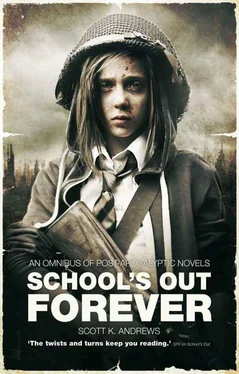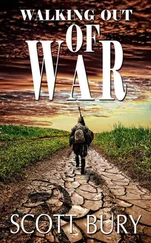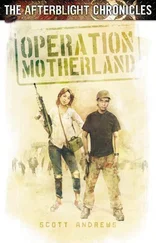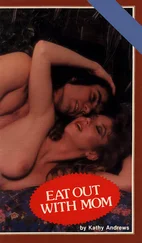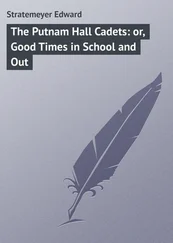“Mac,” I shouted. “We need to go up!”
There were running footsteps approaching from both left and right, so we legged it up the small flight of stairs to the second floor, Cheshire helping Norton. This was the part of the house that had been closed to the public, devoted to private apartments by the National Trust, so we had no map to guide us. We were running blind, but at least we were above our pursuers. With luck there’d be nobody up here.
We were on a landing with four doors leading off it, so we opened the first door and ran inside. We found ourselves in a living room; plush sofas, deep pile carpet, old TV in the corner. There were three mullioned windows along the far wall and Cheshire dumped Norton on the floor and ran to open one of them. Mac and I pushed the sofa across one door and a sideboard across another. We heard the clatter of pursuit up the stairs and the sound of bullets hitting the door.
“Those doors are solid oak,” I said. “Bullet-proof unless they’ve got a heavy machine gun. They won’t blow them either, ’cause this floor is all wood and they won’t risk burning the place down.”
“Great,” said Mac. “So they can’t get in, but we can’t get out.”
“Oi!” Cheshire was shouting out the window, across the moat. “We could use some help here.”
Mac and I ran to join him. We could just make out a group of boys and prisoners in the trees, milling around. There seemed to be an argument going on but we couldn’t hear. A burst of gunfire came from the floor below us, and they ducked. That obviously made their minds up, because a few seconds later the East Bridge, below us and to the left, exploded in a shower of stone and mortar.
“We are so fucked,” said Norton, who had joined us at the window, his shoulder a bloody mess and his face white as a sheet.
He was right, we were fucked. And it was all Mac’s fault.
I stood and looked at the man who’d led us to this place. I thought about Matron and Bates; I remembered the twitching corpses of the TA guys, Dave, Derek and the one whose name I’d never know; I saw Williams clutching his gushing throat.
I felt the weight of the gun in my hand.
ON THE MORNING of March 24 th1918, James B. Grant was part of a group of men leading an assault on a copse somewhere in Belgium. There was a German machine gun emplacement in this small group of trees and it was holding up some advance or other. Grant and his men were instructed to remove this obstacle.
Although Grant was a Lieutenant he was not in charge of that particular assault. A new officer, William Snead, fresh from Oxford and Sandhurst, was in command. It was his first week at the front and he was eager to prove himself a hero, keen to win his first medal. His naiveté and reckless enthusiasm made him dangerous.
Grant had been serving with that group of men for years. They had seen terrible things; survived the battle of the Somme, lost friends and comrades by the score, trudged through mud and blood ’til they were more exhausted than I can imagine. But they trusted each other, even loved each other, in the way that men who’ve risked their lives together do.
So when Snead ordered them to make a frontal assault on an entrenched machine gun nest, a strategy that offered both the greatest chance of glory and the near certainty of pointless death, Grant tried to talk him out of it. They should circle around the gun, he said, approach under cover of darkness, and lob a grenade in. Simple, effective, risk-free.
Snead was having none of it. He accused Grant of cowardice. A shouting match ensued, the privates got involved and Snead, suddenly fearful, drew his Webley revolver and threatened to execute Grant on the spot for desertion in the face of the enemy. Confronted by the muzzle of an officer’s gun, Grant backed down. He apologised, prepared to mount the assault as ordered.
And then, as the men readied themselves to attack, Grant shot Snead in the back.
The German position was taken and Snead was listed as the only casualty of the engagement. Grant had saved the lives of his men in the only way available to him. It was an act of heroism in the face of leadership so stupid that it beggared belief.
But Grant couldn’t live with himself and the knowledge of what he’d done. He surrendered to his commanding officer, made a full confession, and was executed at dawn the next morning.
As was the custom for cowards and traitors, Grant’s name was left off the roll of honour. He was only added to the list of war dead in St Mark’s main hall after one of Grant’s surviving men pleaded his case with the headmaster of the time.
I wonder how many other St Mark’s boys died in the war whose names were not listed. How many were shot at dawn for cowardice as they twitched and shuddered from shell shock; how many were gunned down where they stood because they refused to go over the top to certain, pointless death; how many were executed for refusing to take orders from upper class idiots who were trying to fight entrenched armies with machine guns as if they were Zulus with spears.
Hammond had tried to commemorate those boys who had died in The Cull, but who would paint and hang a roll of honour for those who had survived? Who would paint Petts’ name onto black board, or Belcher’s, or Williams’, or the rest of those boys killed in yet another pointless war they had little choice but to fight?
Who would paint Mac’s name?
Who would paint mine?
As I raised my gun and brought it to bear on the man who had appointed himself my leader, I knew exactly how Grant had felt, nearly a century before me. I knew the anger and resentment of someone forced to follow orders that are cruel, cowardly and wrong. I felt the righteous hatred of a man who believed in justice and honour slaved to a ruler who cared only for power. I felt the despair of a man who longed for peace forced to resort to violence because of the madness of others.
I realised that my days of following orders were done.
So I pulled the trigger and shot the bastard.

CHAPTER TWELVE
HE DIDN’T FALL down. The bullet hit him in the left forearm. Not where I was aiming, but my hands were shaking so much it’s lucky I hit him at all. Why couldn’t I be like Grant; cool under pressure, calmly ruthless?
We looked at each other, neither of us knowing what to do next. The hole in his arm started to leak. He raised his gun to fire back so I shot him again. I hit him in the right shoulder. This time he fell down.
“Drop it!” shouted Cheshire, raising his gun to cover me.
I stood there, staring at Mac, who had fallen backwards and was sitting on the floor with his back against the sofa. He’d dropped his gun and was trying to put pressure on the wounds to stop the bleeding, but neither of his arms was working properly.
Norton walked over to Cheshire, reached out and gently pushed the gun down.
“Leave him,” he said.
I’d killed three people in the last few months. One I could justify to myself as a mercy killing. The other was kill or be killed. The third had been in the heat of battle. But shooting Mac without warning, without any immediate threat to myself, in cold blood… that was different. I wasn’t sure of my own motives any more. Had I shot him to save the school? Was I taking revenge for Matron and Bates? Or was I punishing him for what he’d done to me, what he’d made me into?
I looked down at the smoking Browning in my right hand. I couldn’t work out what it was doing there. I used to hate guns, I thought. How is it that this thing feels so natural? When did I become someone who always carries a gun? I relaxed my fingers and it fell to the floor.
Читать дальше
